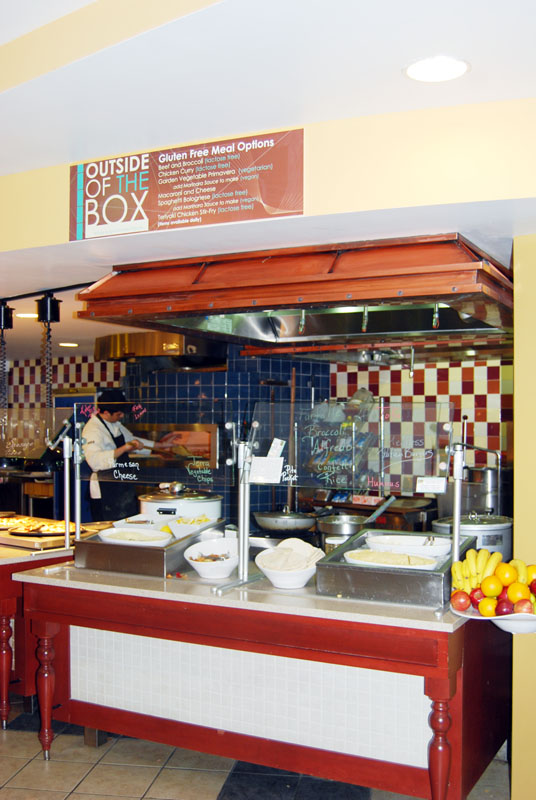Students who attended a recent dining consultation meeting brought a list of grievances nearly as long as the line to get a fresh burger at the Commons Dining Hall. Concerns ranged from uncooked meat, unripe and overripe fruit and the lengthy lines across the College of William and Mary’s dining halls.
The consultation meeting on Feb. 13 featured representatives from Campus Dining, an independent consulting firm. In an effort to compile feedback, the meeting allowed the firm to get students’ views on the current food services on campus.
The contract of the current dining services provider, Aramark, will expire June 30, 2014. The commonwealth of Virginia requires the College to bring in an outside consultation when renewing dining services contracts. This is done in order to gather as much information as possible to create a realistic bid for the College’s future dining service.
Campus Dining, Inc. gathers dining research from universities across the country. Wednesday’s consultation meeting was run by Thomas Newcomb, the president of Campus Dining, Inc. Newcomb travels to colleges throughout the country consulting.
“We probably run about 40 projects like this a year,” Newcomb said. “They don’t bring the universities and colleges any closer to me, so [I] travel a fair amount.”
Newcomb stated that he plans to do a very thorough job with the College. A team from Campus Dining will examine every food facility during every mealtime at least twice, as well as conduct sight and operational reviews throughout campus. The team will also go out on campus to conduct student surveys, asking them to rate the food.
“What I really think [the College] has done very nicely is that they’re investing a lot of time and energy in up-front planning before they go out to bid,” Newcomb said. “They’re really making a very positive effort here.”
Campus Dining received plenty of feedback at Wednesday’s small meeting alone. Newcomb asked participants to rate the food in a survey similar his campus-wide ones. This opened the door to a barrage of complaints, most concerned with the quality of produce and painfully long lines at dining halls. Many students also expressed a desire for more flexibility in their meal plans.
“Students want fresh food,” Interim Director of Auxiliary Services John Byxbe said. “[A] product of this is that kids are going to have to wait in line.”
The solutions to these problems will not appear as quickly as the students brought them up. However, Byxbe is confident that Campus Dining will develop a bid reflective of the students’ needs. Even though this process will take about a year, it will help find the best fit for the College’s dining services.

